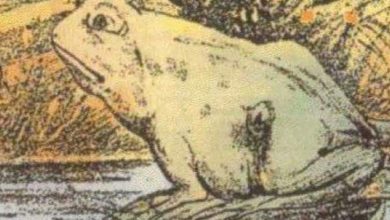Early Signs of Liver Damage & How to Strengthen Your Liver
Your liver is one of the largest organs in your body and is located in the upper right part of your belly under the ribs. The liver is responsible for many functions that are essential for life and this is why you should keep your liver in top working condition and be aware of early signs of liver damage.
The main responsibilities of the liver are:
- Making bile which is required for digestion of fats
- Removal of toxins from the body (not only environmental toxins, but also of metabolic waste)
- Helping to regulate the hormone activity
- Building protein
- Production of biochemicals necessary for digestion
Everything we eat must be processed by the liver before it can be distributed throughout the body. Due to its wide range of functions, the health of our body is directly related to the liver functioning at its peak. Although the liver can replace damaged cells, if enough cells are lost, the liver may not be able to function properly.
The Causes for liver damage
Liver problems usually occur gradually and over many years. The most common cause for liver problems is long term alcohol consumption. Other causes are:
- Various viruses including many type of hepatitis
- Malnutrition
- Reactions to certain medications
- Overuse of certain medications (conventional and alternative)
- Exposure to harmful chemicals
- Inherited disorders of iron and copper metabolism
- Diseases like liver cancer and fatty liver caused by obesity
- Diabetics have an increased risk of liver disease
Even smoking can dramatically increase the risk for not only lung cancer, but also liver cancer. Certain chemotherapy drugs can damage cells in the liver, and even too much of vitamin A can cause liver damage.
Symptoms of liver damage
Abdominal pain – especially where the liver is located, in the upper right part of the belly under the ribs.
General fatigue and confusion – you may feel very weak or tired. The physical feeling can also turn into mental disorientation or confusion. If it occurs along with other related symptoms, it may indicate a liver problem.
Diarrhea, constipation or intestinal bleeding – there are noticeable changes in bowel movement. You may have periods of constipation or diarrhea or change in the stool color or traces of blood in it.
Itchy skin – due to bile salts that are deposited in the skin. The itchiness is persistent and can develop into a flaky rash.
Jaundice (yellowing of the skin and eyes) – this is a symptom of a liver damage that occurs due to a bile pigment (called bilirubin) in the blood and tissues of the body that cannot be eliminated from the body and begins to accumulate under the skin. Sometimes the fingernails or the finger tips can turn yellow. Jaundice is often seen in liver disease such as hepatitis or liver cancer.
Dark yellow urine – Due to increased levels of the bile pigment in the body that cannot be eliminated by the damaged liver. People may associate it with dehydration, but if they drink enough fluids, it should not happen.
Nausea and vomiting – Due the interruption to the digestive system, you may suffer from heartburn, nausea and vomiting.
Loss of appetite / weight loss – in advanced stages of liver disease, there might be appetite loss that can lead to a serious weight loss.
Swollen abdomen or legs – in progressing stages of liver disease (called Cirrhosis) there is a common complication of fluid retention (edema) in the abdominal cavity, but the swelling can also occur in the ankles and legs. When there is a massive fluid in the abdomen, the belly looks like a belly of a pregnant woman and it can also cause pressure in the lungs making it difficult to breathe
Easy bleeding and bruising may occur due to decreased production of clotting factors.
Imbalance in sex hormones – this can cause enlarged breasts in men or poor sex drive.
Blood test results – Normal RDW levels and high MCV levels. These blood tests are used by doctors as part of a complete blood test to help diagnose certain conditions that can affect your health. If your RDW levels are normal but MCV is too high, then this could mean that you have liver problems.
Acute liver failure can also cause symptoms of excessive fluid in the brain and kidney failure.
When you should seek medical help
- If you feel fatigue and weak or you have lost weight without any explanation, go to see your doctor.
- If you have jaundice, persistent fever, abdominal pain and vomiting, you should also be examined.
In addition – I always recommend to see your doctor if you don’t feel well or when having any medical issue. If in doubt see your doctor!
How to Strengthen Your Liver
Looking after you liver is one of the 70 habits featured in my e-book 70 Powerful Habits For A Great Health which will guide you how to take positive steps to improve your wellness and overall health. You can change some unhealthy habits and include lifestyle changes in order to strengthen and take care of your liver:
If you drink excessive amounts of alcohol, it’s about time to limit your alcohol intake! The more you drink and the longer period you do it, the more likely you are to damage your liver.
Limit your caffeine intake, as alcohol and caffeine deposit toxins in your liver and damage its function. You don’t need to completely avoid coffee as a recent research found that a moderate consumption of coffee can actually benefit your liver.
Another bad habit to quit is smoking as it creates toxins that have disastrous effect on the liver.
Instead of alcohol and caffeine, drink plenty of water to help flushing all the toxins in your body.
You can also drink water lemon as lemon juice stimulates bile production (see my other post about the health benefits of drinking lemon water).
Drink herbal teas and natural fruit juices or smoothies. Green tea is especially good as it is rich in antioxidants that improve the liver function and help to reduce fat storage in the liver.
Berries, such as strawberries, blackberries, blueberries and raspberries enhance liver health due to their organic acids that lower sugar levels in your blood and help you to burn fat, thus lowering your chance of fatty liver disease. You can find more information about the incredible healing properties of berries in my e-book The Healing Berry Guide. This e-book will teach you how to transform your health with berries.
It is also important to maintain a healthy body weight by maintaining a proper nutrition and exercising regularly.
Avoid fatty foods, junk foods and processed foods that contain a lot of chemicals and artificial additives and replace them instead with vegetables, especially dark leafy greens and beets, fruits, whole grains, nut and seeds.
Increase your garlic consumption as it improves the liver function by flushing out toxins from the body and protecting the liver from damages caused by toxins. See also my article about the best foods to cleanse your liver.
Another important thing to do, is to follow the dosage of the medications given by your doctor. Also check the label to see if there are any warnings of possible liver damage. This is true not just for conventional medicines, but also for supplements and herbs as they, too, can be harmful to the liver in excess amounts.
If you are diabetics or suffer from high blood pressure, maintain regular medical checkups to monitor your blood sugar levels, triglycerides and cholesterol levels that may lead to fatty liver disease.
Maintain good hygiene habits to prevent hepatitis viral infections through contaminated food, water, blood and other body fluids.
The liver is essential for your survival and currently there is no way to compensate for the absence of liver functions in the long term. This is why you need to maintain your liver in a top condition. Start changing your bad habits now! I know that it’s not always easy, but you have to start from something.












